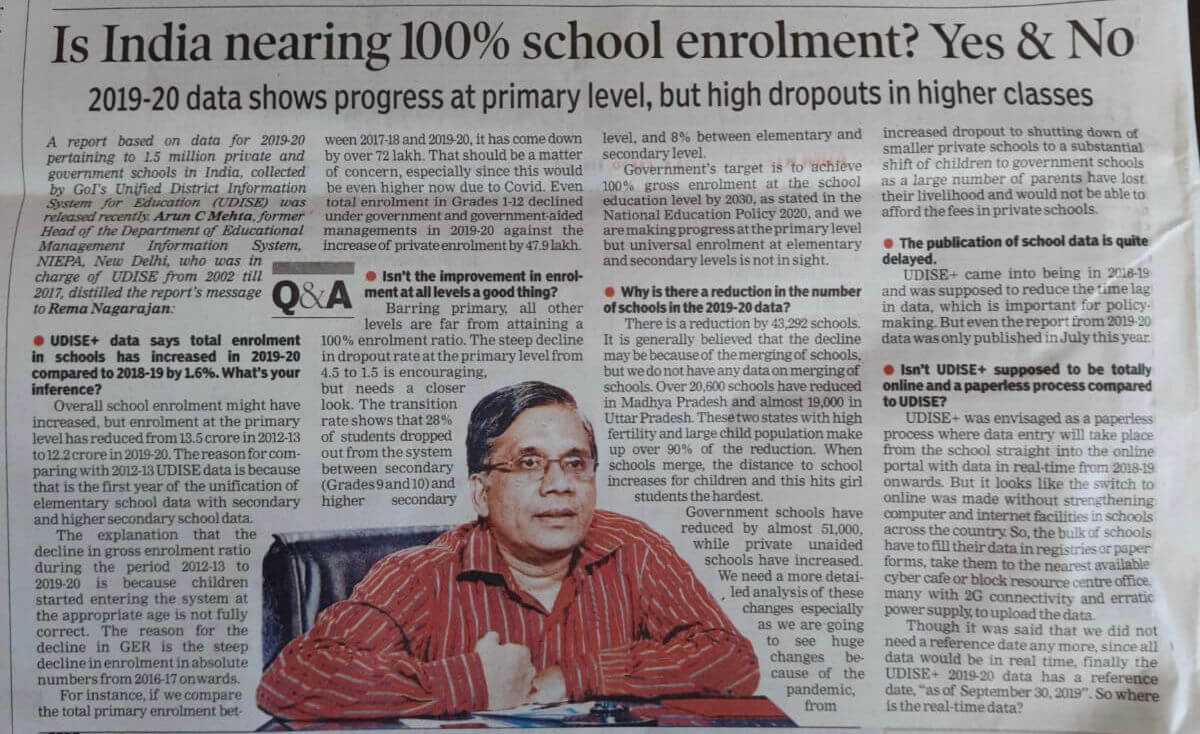DPEP Guidelines: Preface
The district Primary Education Programme (DPEP) guidelines were formulated in April 1993; since then there have been major developments in the evolution of DPEP. In December 1993 the Cabinet accorded its approval for the scheme in principle: in January 1994 the full Planning Commission approved DPEP as a centrally sponsored scheme. District projects were prepared in 42 districts spread over the seven states of Assam, Haryana, Madhya Pradesh, Karnataka, Maharashtra, Tamil Nadu and Kerala. The Planning process in these states has been intensive and extensively drawn up organizations like NCERT, NIEPA and IIMs. It would be a truism to say that DPEP planning processes have provided a valuable opportunity for NCERT/NIEPA to field test many of the pedagogical and management concepts that they have been developing over the years. The studies conducted as a part of the planning process have been of a path breaking nature; and learning levels of over sixty thousand students were tested as part of a baseline study with a rogorous sampling and pedagogic design, with a view to identify are-specific interventions in each of these districts. The Expenditure Finance Committee of India met in May 1994 and has approved details of the DPEP proposals and its financial parameters.
The loftiness of the objectives, the nature and intensity of the planning process, the integration of profession inputs, participative planning and management, and the emphasis on capacity building have together rendered DPEP an exciting idea not only in the country but all over the world. DPEP has broken new pats in international cooperation, in that it belongs to the new genre of the developmental cooperation which emphasizes sustainability, equity, local ownership and execution and is supportive of national policies in the education sector. DPEP is a grown idea in keeping with CABE guidelines, and its distinctiveness lies in that in spite of diversity of sources of funding, it is a national programme intending to achieve UEE in a contextual manner with emphasis on participation and capacity building. Furthermore, many functions performed by funding agencies in the past like supervision and appraisal missions, have been vested with DPEP at the national level – in fact DPEP seems likely to emerge as an intermediary financial, technical and resource organization which may well develop into an educational fund/bank for primary education development in the country.
In the light of these developments and in order to take into account the rich experience gained in the planning process, the DPEP guidelines have been revised. A comparison of this education with the earlier edition, would make it obvious that the philosophy and approach of DPEP – the weltanschaung remains intact. What has been added are the financial parameters and details of the appraisal process.
DPEP is not an enclave project: it is a major and multifaceted programme seeking to overhaul the primary education system in the country. It is only befitting that in an evolving programme, the guidelines would continue to evolve; this edition reflects the present stage of evolution.





